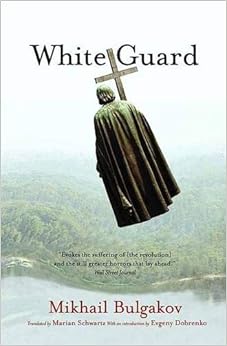
Description
"Mikhail Bulgakov's White Guard is a classic modern novel by one of the greatest Russian avant-garde writers that vividly recreates the chaos of Revolutionary Kiev in 1918. Marian Schwartz's English translation brilliantly reproduces the author's aural and visual montage of a family caught in the deadly whirlpool of multiple warring adversaries."—Charlotte Douglas, New York University (Charlotte Douglas)"Bulgakov's novel evokes the suffering of the conflict and the still greater horrors that lay ahead."—Joshua Rubenstein, Wall Street Journal (Joshua Rubenstein Wall Street Journal 2008-07-19)Finalist for the 2010 Lewis Galantiere Award sponsored by the American Translators Association (Lewis Galantiere Award American Translators Association 2010-11-01) Marian Schwartz is a prize-winning translator of Russian who recently received her second Translation Fellowship from the National Endowment for the Arts to translate Olga Slavnikova’s newest novel, 2017 . She has translated classic literary works by Nina Berberova and Yuri Olesha, as well as Edvard Radzinsky’s The Last Tsar . Evgeny Dobrenko is professor in the Department of Russian and Slavonic Studies at the University of Sheffield. He is author, editor, or co-editor of more than fifteen books, including Political Economy of Socialist Realism , published by Yale University Press.
Features & Highlights
- White Guard
- , Mikhail Bulgakov’s semi-autobiographical first novel, is the story of the Turbin family in Kiev in 1918. Alexei, Elena, and Nikolka Turbin have just lost their mother—their father had died years before—and find themselves plunged into the chaotic civil war that erupted in the Ukraine in the wake of the Russian Revolution. In the context of this family’s personal loss and the social turmoil surrounding them, Bulgakov creates a brilliant picture of the existential crises brought about by the revolution and the loss of social, moral, and political certainties. He confronts the reader with the bewildering cruelty that ripped Russian life apart at the beginning of the last century as well as with the extraordinary ways in which the Turbins preserved their humanity.
- In this volume Marian Schwartz, a leading translator, offers the first complete and accurate translation of the definitive original text of Bulgakov’s novel. She includes the famous dream sequence, omitted in previous translations, and beautifully solves the stylistic issues raised by Bulgakov’s ornamental prose. Readers with an interest in Russian literature, culture, or history will welcome this superb translation of Bulgakov’s important early work.
- This edition also contains an informative historical essay by Evgeny Dobrenko.





